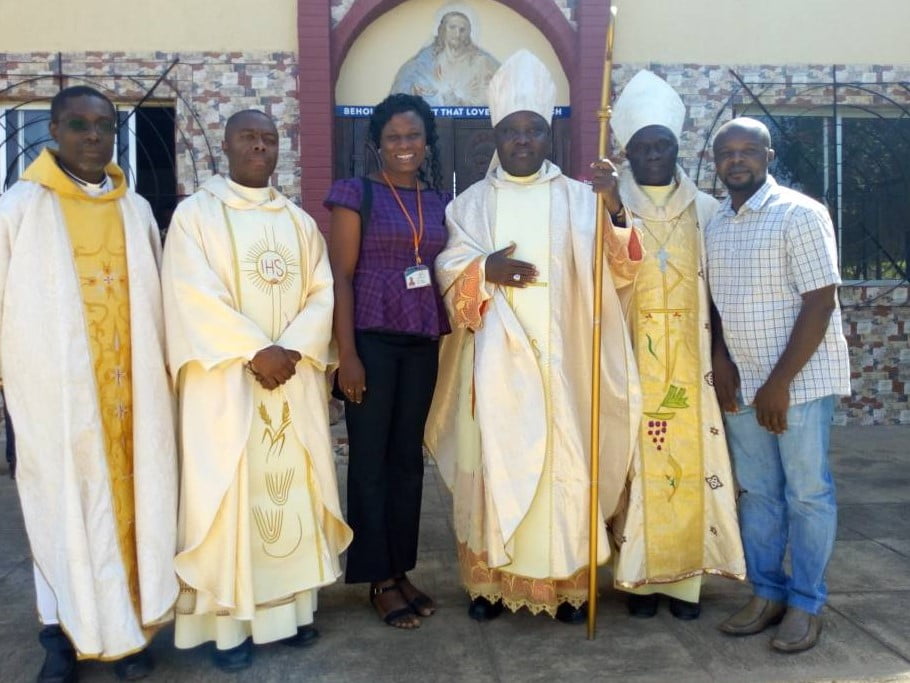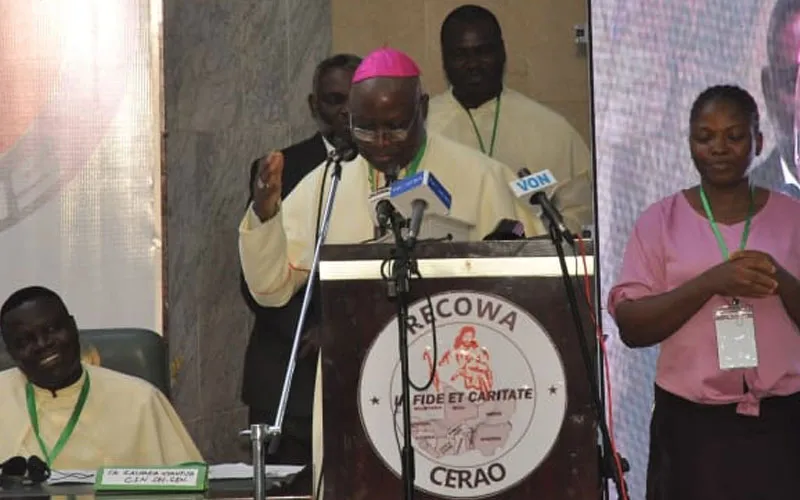Ghanaian President Nana Addo Dankwa Akufo-Addo canceled Sunday, December 1, the constitutional referendum scheduled for December 17, 2019. The vote was aimed at allowing political parties to sponsor candidates. In Ghana, however, these elections are considered non-partisan. But in the president’s eyes at the initiative of this reform, « it has long been clear that political parties were, in fact, actively involved in district assembly elections, despite their seemingly non-partisan nature. » The moment had come, he felt, « to strip the process of its hypocrisy, to accept and work with the reality of party participation. »
In a brief speech to the nation, the president said his government would now work for a broad national consensus: « I do not think such an amendment should be considered a party matter, » he said. There must be a clear national consensus and agreement among the population that a particular entrenched provision no longer serves the interests of the people and must be removed. »
The president thus granted the request of the Conference of Catholic Bishops of Ghana (Gcbc) who pleaded for a postponement of the vote, after a hearing Sunday with the Ghanaian Vice President Mahamudu Bawumia, at the request of the head of state. « We bishops call on the government and the electoral commission to postpone the referendum, » said Archbishop Palmer-Buckle, who led the delegation of Catholic bishops. A postponement would not cause any constitutional crisis. We should make the best decisions that will stand the test of time. Why not postpone it and work around a consensus? »
worries
At this meeting, Bishop Charles Palmer-Buckle, Vice President of the GCBC, explained to his host that « the current political context was currently poisoned. »
A few weeks earlier, the Ghanaian bishops had expressed concern about the lack of information on this important poll. In collaboration with the Konrad Adenauer Stiftung (KAS) – a German think tank – the episcopate was working to raise awareness and understanding of the stakes of this referendum. In each diocese, they organized explanatory meetings that allowed administrative authorities and civil society actors to discuss its issue.
« There are not the usual comments and debates that accompany elections and politics as we have seen recently, » regretted on November 5, Bishop Philip Naameh, Metropolitan Archbishop of Tamale, in northern Ghana, and president of the Gcbc. And this, « despite the fact that our very development infrastructure is based on the effective mobilization of local resources and the participation of local populations in governance, » he insisted.
Before the president’s decision to cancel the referendum, the country’s main opposition party, the National Democratic Congress (NDC), called on voters to vote « No ».
xxxxxxxxxxxxxxxxxxxxxxxxxxxxxxxxxxxxxxxxxxxxxxxxxxxxxxxxxxxxxxxxxxxxxxxxxxxxxxxxxxxxxxxxxxxxxxxxxxxxxxxxxxxxxxxxxxxxxxxxxxxxxxxx
Les évêques catholiques du Ghana et le président Nana Akufo-Addo / Ghana Catholic Bishop’s Conference. Le président du Ghana, Nana Akufo-Addo, a annulé le référendum sur une modification de la constitution qui aurait donné plus de poids aux partis politiques dans les élections locales. Cette décision intervient après l’appel de l’Église à reporter ce scrutin prévu le 17 décembre.
Le président ghanéen Nana Addo Dankwa Akufo-Addo a annulé, dimanche 1er décembre, le référendum constitutionnel prévu le 17 décembre 2019. Le vote visait à permettre aux partis politiques de parrainer des candidats. Or, au Ghana, ces élections sont considérées comme non-partisanes. Mais aux yeux du président à l’initiative de cette réforme, « il était depuis longtemps évident que les partis politiques étaient, en fait, activement impliqués dans les élections à l’assemblée de district, malgré leur nature apparemment non partisane ». Le moment était venu, estimait-il, « de dépouiller le processus de son hypocrisie, d’accepter et de travailler avec la réalité de la participation des partis ».
Dans un bref discours à la nation, le président a déclaré que son gouvernement œuvrerait désormais en faveur d’un large consensus national : « Je ne crois pas qu’un tel amendement devrait être considéré comme une affaire de parti, a-il justifié. Il doit exister un consensus national clair et un accord parmi la population selon lequel une disposition enracinée en particulier ne sert plus les intérêts de la population et doit donc être supprimée. »
Le président accède ainsi à la demande de la conférence des évêques catholiques du Ghana (Gcbc) qui plaidait pour un report du vote, après une audience dimanche avec le vice-président ghanéen Mahamudu Bawumia, à la demande du chef de l’État. « Nous, évêques, appelons le gouvernement et la commission électorale à reporter le référendum, avait déclaré l’archevêque Palmer-Buckle, qui conduisait la délégation d’évêques catholiques. Un report ne provoquerait aucune crise constitutionnelle. Nous devrions prendre les meilleures décisions qui résisteront à l’épreuve du temps. Pourquoi ne pas le reporter et travailler autour d’un consensus ? »
Inquiétudes
À cette rencontre, Mgr Charles Palmer-Buckle, vice-président de la GCBC, avait expliqué à son hôte que « le contexte politique actuel était actuellement empoisonné ».
Quelques semaines plutôt, les évêques ghanéens s’étaient dits préoccupés par le manque d’information sur cet important scrutin. En collaboration avec la Konrad Adenauer Stiftung (KAS) – groupe de réflexion allemand –, l’épiscopat travaillait à mieux faire connaître et comprendre les enjeux de ce référendum. Dans chaque diocèse, ils organisaient des rencontres d’explication qui permettaient aux autorités administratives et acteurs de la société civile de discuter de son enjeu.
« Il n’y a pas les commentaires et débats habituels qui accompagnent les élections et la politique comme nous l’avons vu récemment », avait regretté, le 5 novembre, Mgr Philip Naameh, archevêque métropolitain de Tamale, dans le nord du Ghana, et président de la Gcbc. Et ce, « malgré le fait que notre infrastructure même de développement est basée sur la mobilisation efficace des ressources locales et la participation des populations locales à la gouvernance », avait-il insisté.
Avant la décision du président d’annuler le référendum, le Congrès national démocratique (NDC), principal parti de l’opposition ghanéenne, appelait les électeurs à voter « Non ».
- CATHOLIC ARCHBISHOP IN GHANA HAILS POPE LEO XIV AS GOD’S GIFT - 23 mai 2025
- POPE LEO XIV TO APPROVE CANONIZATIONS - 22 mai 2025
- THE EVOLUTION OF PAPAL TRANSPORTATION - 20 mai 2025







